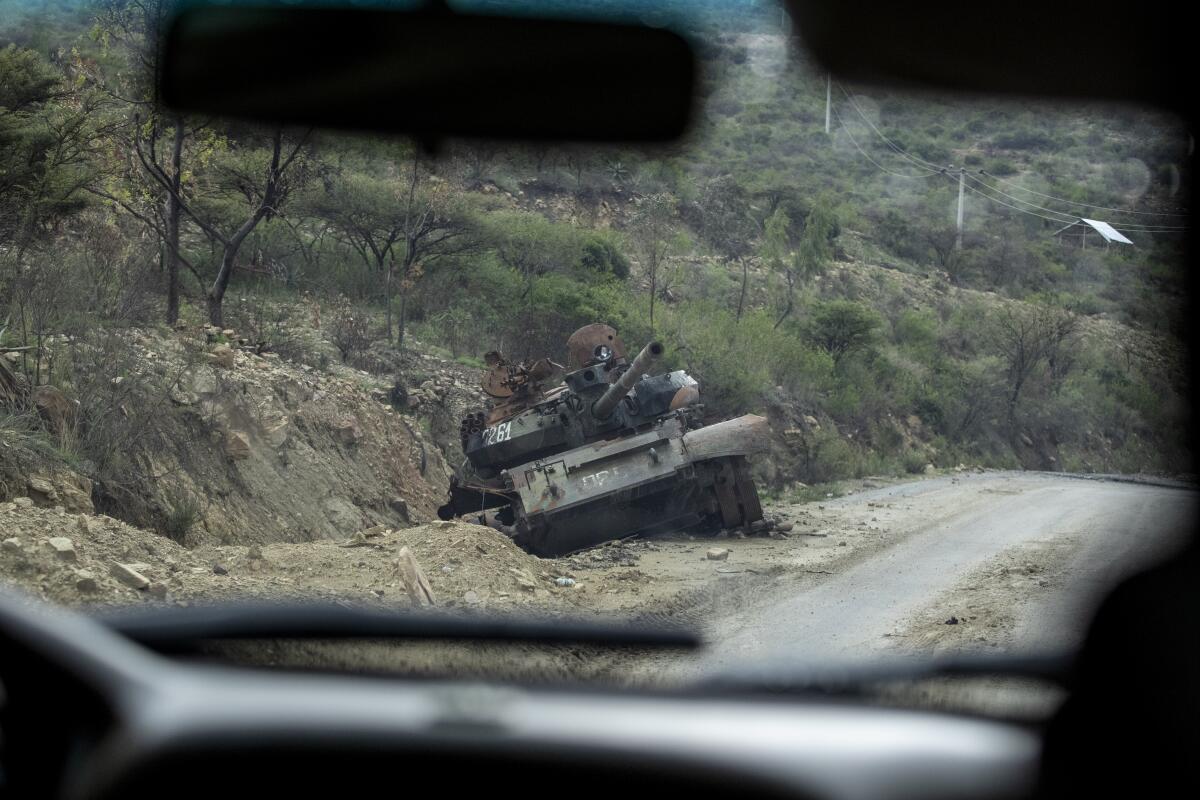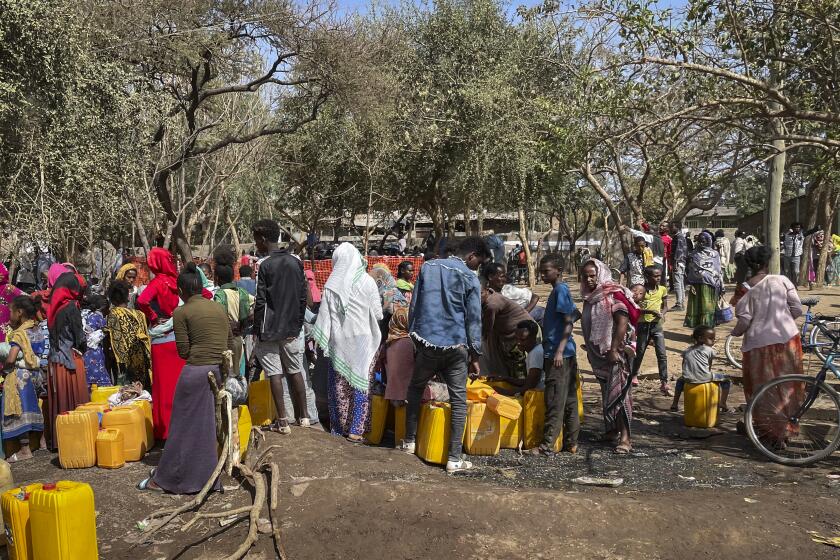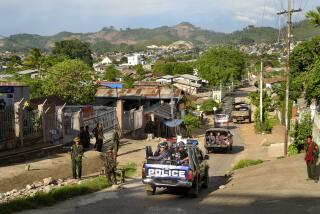Eritrean forces withdraw from key towns in Ethiopia’s embattled Tigray region

- Share via
NAIROBI, Kenya — Soldiers from Eritrea have withdrawn from three key towns in Ethiopia’s Tigray region a day after Tigrayan fighters took control of the regional capital, Ethiopia’s forces retreated and the Ethiopian government declared an immediate, unilateral cease-fire.
The swift turn in the nearly eight-month war has left people scrambling to understand what exactly is going on in the region of 6 million people as communications links are largely down. The people in close contact with witnesses who confirmed the withdrawal spoke on condition of anonymity for their safety.
Eritrean soldiers, accused by witnesses of some of the war’s worst atrocities, left the towns of Shire, Axum and Adwa, but it was not immediately clear whether they had left other communities, where they were going or whether the retreat was temporary. The information ministry of neighboring Eritrea, described by human rights groups as one of the world’s most repressive countries, did not immediately respond to questions.
Tigray’s former leaders say they are now in control of the regional capital, Mekele. The Tigray leaders, who have waged a guerrilla war since November after a political falling-out with the central government of Ethiopian Prime Minister Abiy Ahmed, called on supporters in a statement issued overnight to “intensify their struggle until our enemies completely leave Tigray.”
The arrival of Tigrayan forces in Mekele was met with cheers after the interim regional administration, appointed by Ethiopia’s government, fled.
Tigrayan fighters then moved into Shire on Tuesday, their latest gain after some of the most intense fighting of the war in Africa’s second-most populous country. Shire in recent months saw the arrival of hundreds of thousands of people fleeing intimidation in western Tigray and is a key staging area for humanitarian aid.
Tigrayan forces were now in control of much of the region after a major counteroffensive with mass popular support, International Crisis Group analyst William Davison said in a statement.
Residents of the town of Bora, in northern Ethiopia’s Tigray region, tell of a horrific massacre of local men and boys by Ethiopian soldiers.
Preventing growing famine conditions in the region “has to be the priority of the [Tigrayan] leadership, given their forces are now in a position to facilitate access to many previously hard-to-reach areas,” Davison said, urging Ethiopia’s government not to sabotage the urgent humanitarian efforts.
Major questions remained about the fate of the more than 1 million civilians that the United Nations has said remain in parts of Tigray that have been hard, if not impossible, to reach with aid. The United States has said that up to 900,000 people now face famine conditions in the world’s worst hunger crisis in a decade.
It was not clear whether other combatants, notably the Eritreans as well as fighters from the neighboring Amhara region who have occupied much of western Tigray, would adhere to the cease-fire or whether blockages of aid access would be lifted.
Ethiopia has said the cease-fire is in part to allow the delivery of aid but will last only until the end of the crucial planting season in Tigray, which is in September.
Breaking News
Get breaking news, investigations, analysis and more signature journalism from the Los Angeles Times in your inbox.
You may occasionally receive promotional content from the Los Angeles Times.
In the Ethiopian capital, Addis Ababa, people said they weren’t sure whom to believe amid the battlefield claims, and hoped for peace.
“It’s the innocent children, farmers and the poor people that are at the front of the war and are suffering,” resident Biruk Dessalegn said.
More to Read
Sign up for Essential California
The most important California stories and recommendations in your inbox every morning.
You may occasionally receive promotional content from the Los Angeles Times.











